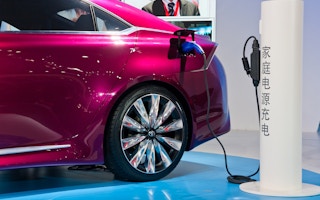After more than two years, Singapore has concluded its electric vehicle (EV) test-bed and authorities say the information gathered will be used to formulate plans for further trials, which could involve car-sharing and commercial vehicle fleets.
In a statement to Eco-Business, the Land Transport Authority (LTA) and Energy Market Authority (EMA) said that it has concluded the first phase of testing at the end of last year, and information gathered “will allow for the better understanding of unique issues and challenges pertaining to EV adoption in Singapore, should they become commercially feasible”.
Singapore as a compact city-state has long been highlighted by many EV experts as a perfect location for the proliferation of EVs, but the country has been slow to implement the infrastructure needed, leaving EVs out of reach for the average consumer and in the domain of research projects.
According to a new report by Navigant Research, the global plug-in electric vehicle (PEV) industry is poised to grow by 86 per cent and will surpass more than 346,000 new vehicles sold. Countries such as Japan, the United States, China, France and Norway are leading the EV revolution with the highest adoption rates.
Launched in 2011, an inter-agency Electric Vehicle Taskforce (EVTF) co-chaired by EMA and LTA was set up to test and gauge the viability of different commercially available EV models and charging technologies, given Singapore’s urbanized environment, road conditions and consumer market.
Even while acknowledging that EVs can be cleaner and more energy efficient than the typical internal combustion engine car, LTA said that its upfront costs are significantly higher and that this remains the biggest roadblock for commercial adoption.
Even under the enhanced Transport Technology Innovation Development Scheme (TIDES-PLUS), where vehicular taxes are waived, the life cycle cost of an EV in Singapore would likely still be higher as compared to conventional vehicles paying full taxes, said LTA.
But new developments in battery technology and economies of scale could further push down the costs of EVs, making it cheaper over time, it added.
Giving a summary of the findings of the test-bed, LTA said the first phase of the test-bed involved 53 organisations, including companies, government agencies and institutions of higher learning; 89 electric cars have been used on the roads.
There are four EV models currently available under the EV test-bed (Mitsubishi iMiEV, Daimler smart electric drive, Nissan Leaf and the Renault Fluence Z.E.).
It also found that the daily usage of EVs of 41 kilometres (km) is within the average daily driving distance for Singapore at 55 km.
EVs are also able to perform in local conditions and can reach a maximum of 115km based on one full charge - close to the maximum EV driving range of 120km to 160km indicated by the dealers. The longest driving distance clocked in a day was at 165km. Drivers also find EVs are quieter and with good acceleration, LTA said.

















